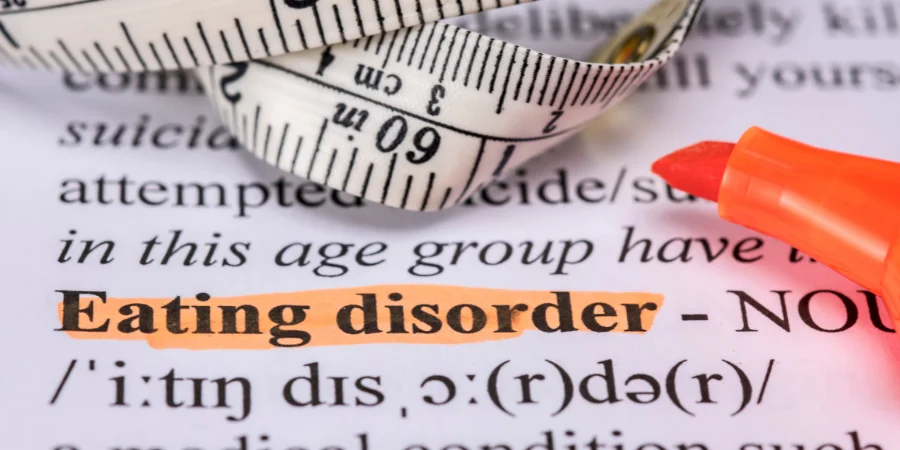
Written by:

Medically Reviewed by:
Last Updated:
February 24th, 2025
OSFED | Definition, Symptoms and Causes
- Select
- OSFED
- OSFED rehab
An OSFED is a type of eating disorder, which stands for Other Specified Feeding or Eating Disorders. This diagnosis is given its name because it has different characteristics from those of common and better-understood conditions. This can make it difficult to diagnose, but there are a range of treatments and solutions available for those that need support. At Primrose Lodge, we treat people for a wide range of different food and weight-related eating disorders and we have had many incredible success stories over the years.
What are OSFEDs?
OSFEDs are a range of eating disorders that share similar symptoms to anorexia, bulimia, and binge eating disorder but don’t fit neatly into any one of those categories. However, this doesn’t mean they are not serious conditions as they can have a serious impact on both your short- and long-term health and also badly affect every other aspect of your life.
Commonly seen forms of OSFED include:
- Over-exercise
- Orthorexia
- Diabulimia
- Body dysmorphic disorder
- Atypical Anorexia Nervosa
- Binge Eating Disorder of Lower Frequency
- Night Eating Syndrome
- Purging Disorder
When do non-conventional eating habits become an eating disorder?
Spotting an eating disorder in yourself and others can be difficult because everyone has their own unique relationship with food. Some people are more particular about what they eat while others have stricter diets for religious or cultural reasons. So, when does a non-conventional eating habit become an eating disorder?
The answer to this question isn’t always clearcut, but OSFEs and unusual eating habits have some key differences:
- Unusual eating habits are usually not accompanied by distorted body image, shame, anxiety or other mental health disorders.
- They are usually not associated with bingeing, purging or other compensatory behaviours.
- They are often cultural or religious in nature and do not necessarily reflect a negative view of the self.
- They do not affect a person’s quality of life in the same way that an eating disorder does.
What are the different routes to developing an OSFED eating disorder?
There are various reasons why you may develop an OSFED with the causes varying from person to person. However, there are three main factors that can all contribute to the development of these conditions: biological, psychological and sociocultural:
Signs and symptoms of OSFEDs
Your own individual symptoms will depend on the nature of the eating disorder you have. It is important to understand that the sooner you become aware of your condition, the sooner you can begin to heal. Your own individual symptoms will depend on the nature of the eating disorder you have but to identify OFSEDs in their early stages, you need to know what tell-tale signs to look out for. These signs can be either physical or behavioural in nature.
Physical symptoms…
- Absence of menstruation
- Brittle nails
- Dehydration
- Dizziness or fainting
- Dry skin
- Extreme weight loss or gain
- Fatigue
- Intolerance to cold
- Irregular heart rhythm
- Seizures
- Thinning hair
- Low blood pressure
Many of these physical symptoms are also common in other eating disorders, which is why it can be difficult to diagnose an OSFED. This is why it’s important to be aware of the behavioural symptoms as well.
Behavioural symptoms…
- Distorted body image
- Strange rituals associated with food and/or eating
- Binge eating
- Purging by laxative abuse, diuretic abuse, self-induced vomiting, or compulsive exercise
- Manipulation of insulin for weight loss
- Restricting calories and/or self-starvation
- Obsessive exercise behaviour
- Obsession with food cleanliness or purity
- Intense shame or anxiety related to food, eating or body image
You are also likely to engage in loss-of-control eating behaviours. For example, you may eat past satiety, impulsively eat or only eat late at night. Likewise, compulsive food behaviours are common in people with an OSFED eating disorder such as obtaining and eating food that has been thrown away or hiding food.
Health risks of an OSFED
Having an OSFED comes with a whole host of risks to your health, both in the short and long term. These risks will depend on what type of condition you have as well as other factors such as how long you’ve been suffering from it.
In general, however, some of the physical health risks associated with having an OSFED include:
- Anaemia
- Bone loss and osteoporosis
- Cardiovascular problems
- Dehydration
- Electrolyte imbalance
- Gastrointestinal disorders
- Hormonal imbalances
- Kidney damage or failure
- Liver damage or failure
- Malnutrition
OSFEDs can also lead to (and be symptoms of) mental health disorders such as anxiety, depression and substance abuse. If you have an eating or weight-related condition, it’s important to seek professional help as soon as possible so that you can get to the root of your disorder and start on the road to recovery.
The importance of not enabling an OSFED sufferer
If you’re struggling to deal with a loved one’s OSFED, it’s important to seek professional help. This will give you the tools and support you need to deal with the situation in a healthy way. When a loved one has an eating disorder it can drastically change their mood and personality causing them to become withdrawn or difficult to be around. It’s important to remember that this is not their fault and that they need patience and understanding to help them overcome their disorder.
It can be tempting to enable their disorder in order to avoid conflict or make them happy. You should never do this as it will only serve to perpetuate the issue.
Some common examples of enabling behaviours include:
- Making excuses for their behaviour
- Hiding food or giving them food they are not supposed to have
- Downplaying the seriousness of their disorder
- Avoiding conversations about their weight, food or body image
- Ignoring the advice given by professionals
If you’re struggling to deal with a loved one’s OSFED and find yourself enabling them in any way it’s important to seek professional help. This will give you the tools and support you need to deal with the situation in a healthy way. Get in touch with Primrose Lodge today and we can help your loved one get the treatment they need.
Signs that a loved one is hiding an eating disorder
Eating disorders can be very sneaky and manipulative and try to convince you that everything is fine. Here are some common tricks that a loved one with an OSFED may try and how to spot them:
How OSFEDs can be overcome
OSFEDs are complex conditions that usually require a combination of different treatments to be effective. At UKAT, we offer a comprehensive treatment programme that is tailored to your needs. Our main centre that provides OSFED rehab treatment is at Banbury Lodge, Oxfordshire where the staff are experts in treating a range of different food- and weight-related conditions. It is also one of the only centres in the UK to treat 16-19-year-olds for eating disorders.
Get in touch with us today to find out more about our eating disorder programmes or to start your application.





